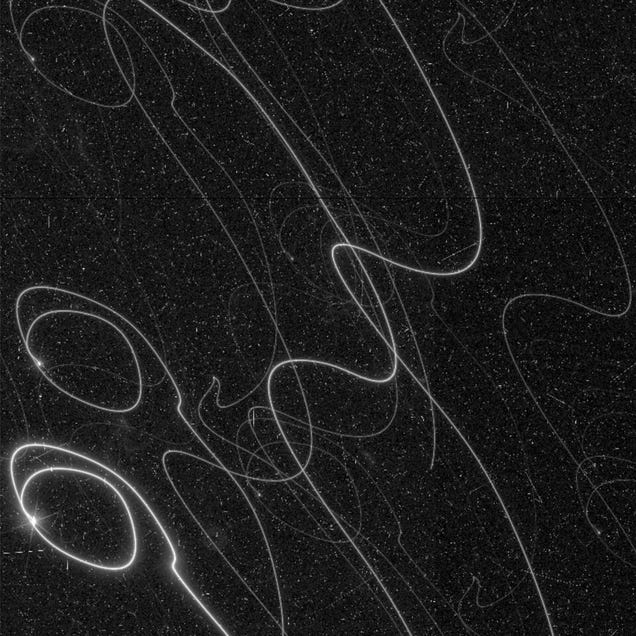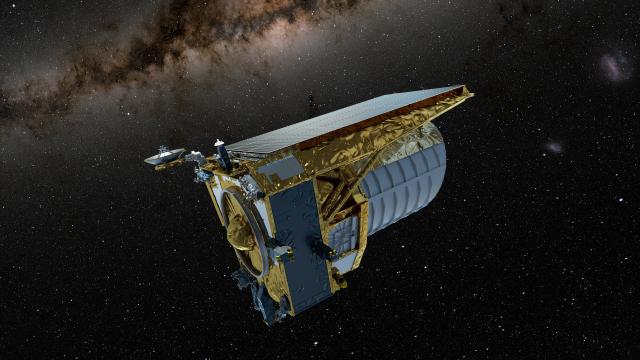Despite a rough start to its six year mission, the Euclid space telescope is ending its commissioning phase on a high after finally being able to find its guide stars again.
Thanks to a clever software patch, issues with the telescope’s Fine Guidance Sensor have been resolved and it is now ready to undergo its final testing in full-on science mode, the European Space Agency recently announced.
ESA’s Euclid telescope launched on July 1 to explore the mysteries of the dark universe—parts of the cosmos made up of dark energy and dark matter. The first few months of its journey, however, have not been smooth sailing.
Euclid’s fine guidance sensors were occasionally losing track of guide stars, which is a way for the mission to point precisely at regions of the cosmos. The problem was caused by cosmic rays, such as high energy radiation emanating from the Sun’s solar flares, that would result in false signals appearing in Euclid’s observations. “These false signals intermittently outnumbered real stars and Euclid’s Sensor failed to resolve star patterns that it needed to navigate,” ESA wrote.

The above image is a result of Euclid failing to lock into place while observing a field of stars. Instead, the dizzying image shows swirls of star trails as the telescope tried to focus on its target.
The team on the ground designed a software patch to be installed on Euclid. “We carefully tested the software update step by step under real flight conditions, with realistic input from the Science Operations Centre for observation targets, and finally the go-ahead was given to re-start the Performance Verification phase,” Micha Schmidt, Euclid spacecraft operations manager, said in a statement.
The Euclid telescope can now be tested in space while in science mode, an important step that will last until late November before the mission begins its real work. “Now comes the exciting phase of testing Euclid in science-like conditions, and we are looking forward to its first images showcasing how this mission will revolutionise our understanding of the dark Universe,” Carole Mundell, ESA’s director of science, said in a statement.
